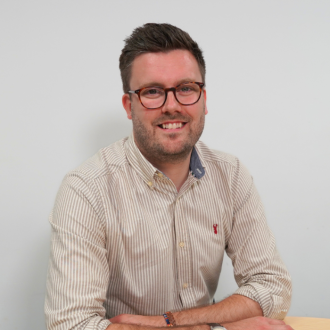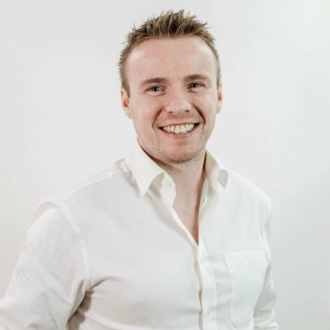- Undergraduate
Psychology with Foundation Year BSc (Hons)
Overview
Why study at the University of West London?
- Our Psychology courses are ranked 1st in London, 5th in England and 7th in the UK - National Student Survey 2024**
- Ranked 30th university in the UK - The Guardian University Guide 2025
- Number 1 London university for overall student satisfaction - National Student Survey 2024**
- Best university for Student Experience and Teaching Quality in the UK - The Times and Sunday Times Good University Guide 2024
If you want to understand the processes that influence how people think, behave, feel and act, then this psychology degree is for you.
Accredited by the British Psychological Society (BPS) since 1986, our psychology course is one of the longest-established in the UK. We take a contemporary approach, so you will study both BPS core content and innovative modules that explore current developments in psychology.
You will learn from staff and guest speakers with valuable experience in the field, while also having the opportunity to gain work experience where you can apply your knowledge and skills.
Our psychology research facilities include state-of-the-art brain imaging electroencephalogram (EEG), eye tracking equipment and a range of experiment and research software. We provide access and a high standard of support for the use of these facilities.
Foundation Year
The foundation year course is designed to equip you with the skills and knowledge you need to continue onto your Honours degree. You will study a range of subjects that will underpin your future study and also gain valuable experience of university life, with full access to campus facilities. Successful completion of the year allows you to progress straight onto Level 4 of this course. Please note that a £2000 Path to Success bursary is available to all UK foundation year students, which is non-repayable.

Select your desired study option, then pick a start date to see relevant course information:
Start date:
If your desired start date is not available, try selecting a different study option.
Why study Psychology with Foundation Year with us?


What our students say…
The University's psychology department ensures students are comfortable and confident in their environment - both academically and socially. This is a perfect foundation for success to be built upon.




Course detail & modules
This psychology degree course will cover multiple important areas in psychology. From the start, you will not only develop your knowledge of basic principles but also have the chance to explore topics in which you have a particular interest.
Your exploration will be aided by our lecturers, many of whom are involved in psychology research. Their specialisms cover fascinating and evolving areas, such as cyber-bullying, binge drinking and honour-based violence.
You will also have opportunities to learn from the experiences of practising psychologists who we will invite as guest speakers.
We offer a supportive environment for your studies and you will benefit from an open-door policy, with staff available for academic and pastoral help if you need it. Throughout the course, you will also have a personal tutor to work with you.
Additionally, we will encourage you to take opportunities for work experience. This type of experiential learning will help you relate your theoretical knowledge to real-world practice. Past students have completed their work experience in a range of settings, including:
- victim support schemes
- drug support schemes
- after-school clubs
- market research.
You will also have access to specialised equipment and software that will aid your learning and provide practical research skills including:
- experiment building software such as Testable, SuperLab and Psychopy
- BIOPACS
- eye tracking units with biofeedback integration capability
- Electroencephalography (EEG)
- portable EEG
- validated cognitive ability tests.
Once you complete this course, you can apply for Chartered Membership of the BPS on a Graduate basis. This can open up further opportunities for advanced studies in psychology.
Foundation year
There are many reasons for joining a foundation year course; you may not have the exact subjects or grades at A level to meet the entry requirements, you may have been living abroad or want to change direction with your career. Whatever your starting point, the foundation year offers a firm grounding in the skills and knowledge that you will need to get the most from your studies and thrive at University. Successful completion of the foundation year allows you to progress straight onto Level 4 of this course.
Compulsory modules
-
Essential Psychology
In this module you will learn the major schools of thought in psychology. You will journey through the most influential psychological studies of the 20th century, considering their sociocultural contexts, methodologies, and impact on the way psychology is studied today. Focusing on these classic studies will give you essential foundational knowledge about the conceptual, historical, and philosophical background of Psychology.
-
Personalised Learning
The Personalised Learning module is intended to equip you with the study skills needed to successfully progress onto level 4, the first year of undergraduate study. Tutor group sessions are an integral part of the module, where you will consolidate your learning and frame it in the context of your subject area. The module will focus on various aspects of study skills, such as those skills related to reading and writing, learning approaches, problem-solving techniques, critical thinking, researching, referencing, plagiarism, legal research and time management.
-
Introduction to Data for Psychologists
In this module you will learn why data is important for psychology and develop a range numeracy and data handling skills. This module also introduces students to some of the tools used by data analysts such as Microsoft Excel.
-
Study Skills for Success
This module will enable you to read critically, present an argument, and distinguish between the quality and suitability of materials. It will prepare you to use and evaluate a range of evidence sources throughout your degree.
-
Current Opinions in Psychology
In this module you will learn about the psychological research currently taking place at the University of West London. Our research-active academics will tell you about their research programmes, along with the philosophical assumptions, and historical contexts underpinning that research. This module provides you with a front-row seat to the discipline covering topics from addiction to sport and exercise.
-
Answering Questions in Psychology
In this module you will learn how psychology answers questions about people and the world. You will be introduced to knowledge generation and establishing evidence through a combination of theoretical and practical activities.
Compulsory modules
-
Understanding Ourselves and Others
In this module you will be introduced to the psychology of individual differences. You will learn topics in human variation such as personality, intelligence, and neurodiversity and other psychological factors which make us unique.
-
Mind, Brain, and Behaviour
In this module you will be introduced to biological and cognitive psychology. You will learn the biological basis of behaviour and how the interactions of thinking, emotion, creativity, and problem-solving influence our behaviour.
-
Data Handling and Analysis in Psychology
In this module you will begin your training in psychological research methods developing the practical skills you need to conduct research. You will learn about research design, ethical issues, analytical techniques and study how to programme and code experiments, and analyse data from surveys and observation studies.
-
Development in a Social World
In this module you will be introduced to social and developmental psychology. You will learn how humans develop over the lifespan and how individual and group behaviour changes based on the presence of and our interaction with others.
-
Real Word Psychology: Mental Health
In this module you will be introduced to real world applications and implications of mental health. You will learn about mental health and wellbeing in the modern age, the prevalence of mental disorders in the UK and internationally, and gain knowledge of evidence-based treatments for mental health disorders.
-
Qualitative Inquiry in Psychology
In this module you will continue your psychological research methods training gaining insights into non-numerical methods. You will learn about interviews, thematic and discourse-based analyses, and practice a range of qualitative research techniques.
Compulsory modules
-
Personality and Individual Differences
This module will take your understanding of individual differences to the next level. In this module you will explore the role of culture and how assessment and measurement vary across general and diverse populations. You will also cover hands on topics such as psychometrics testing in personality and intelligence.
-
Cognitive Neuroscience
This module will advance your understanding of cutting-edge neuroscience. In this module you will engage with advanced topics in brain and behaviour and how our biology influences how with think, remember, and learn. You will also cover topics such as the neurological basis of addictive behaviour.
-
Psychology in Practice
This module enhances your career readiness preparing you for the workforce. In this module you will experience a unique dual approach covering psychological concepts and theories related to employability whilst engaging in work experience.
-
Psychosocial Development across the Lifespan
This module will expand your understanding of the social processes related to human development. In this module you will evaluate social interactions and developmental milestones from infancy to later adulthood. You will also cover topics such as language development and its impact on people’s behaviour.
-
Mental Health, Wellbeing, and Resilience in Psychology
This module will provide you with a holistic understanding of resilience and wellbeing. In this module you will journey through the applications of positive psychology and its role in managing mental health. You will also cover topics such as prevention interventions and trauma informed care approaches.
-
Becoming an Independent Researcher
This module further develops your research methods and data analytical skills. In this module you will increase your independent research skills by studying advanced designs and analyses to answer real-world questions. You will also cover topics such as openness and transparency in psychological research.
The UWL Psychological Sciences department regularly reviews the modules offered to provide up-to-date, innovative, and relevant study modules. Therefore, modules offered may change. Students will be informed of this in advance when making their selections.
Compulsory modules
-
Dissertation
This module is your opportunity to conduct your own independent research project on a psychological topic of your choice. Working closely with a member of academic staff you review relevant literature to generate a research question, design a study to address your question, obtain ethical approval for your study, collect and analyse your data, and write this up as a final research report.
Optional modules
-
Clinical and Counselling Skills
This module introduces you to the foundational skills needed for careers in clinical, counselling, and psychotherapy professions. You will learn and apply evidence-based theory through interactive sessions to prepare for successful client-focused work.
-
Neuropsychology
This module introduces students to the specialist area of neuropsychology placing you at the forefront of cutting-edge science. You will learn how brain injury and disease impact the brain and behaviour link and examine case studies within the field.
-
Psychopharmacology and Addictive Behaviours
This module overviews key issues in relation to substance use, misuse, and addiction. You will learn substance classification, neurochemistry, and addiction trends at national and international level.
-
Psychology of Abusive and Violent Relationships
This module overviews key issues in relation to violence in relationships and explore the antecedents and consequences of abuse. You will learn how these concepts are applied in practical settings, the impact upon victims and perpetrators, and the processes surrounding rehabilitation.
-
Health Psychology
This module introduces you to the health psychology pathway essential for the healthcare sector. You will learn how psychological principles can be applied to the understanding of illness and health and how to promote healthy behaviours in people and communities.
-
Occupational Psychology
This module introduces you to the occupational psychology pathway essential for organisations and work. You will learn how psychological issues relate to the workplace and how these principles may be applied to enhance well-being and productivity in organisations.
-
Therapeutic Approaches to Behaviour Change
This module overviews non-medical models and their role in health and wellbeing care. You will learn how multi-disciplinary approaches outside of health and social care settings can provide unique benefits to those who need it most.
-
Mental Health Diagnosis and Intervention
This module overviews the main diagnostic categories of psychological disorders, the major theories of causation, and the various approaches to treatment. You will learn how to identify links between theory and treatment of and to evaluate current approaches to mental health problems.
-
Forensic Psychology
This module introduces you to the forensic psychology pathway essential for the criminal justice system. You will learn how psychological theory and practice is used to interview witnesses, identify perpetrators, and detect deception across a range of offender behaviours.
-
Psychology of Culture and Diversity
This module overviews how social psychological theory can be applied to understand issues related to culture and diversity. You will learn how concepts such as multiculturism and social identity can be better understood adopting a social justice lens.
Entry requirements
These can include:
- A Levels at grades C and C
- BTEC Extended Diploma with Merit, Pass, Pass
- Access to HE Diploma
- T Levels
You also need GCSE English and Maths (grade 9 - 4 / A* - C) or Level 2 equivalents.
Looking for BSc (Hons) Psychology without Foundation Year?
You may be eligible for a student loan to cover the cost of tuition fees, or a maintenance loan. Additional funding is available to some types of students, such as those with dependants and disabled students.
Looking for BSc (Hons) Psychology without Foundation Year?
You need to meet our English language requirement - a minimum of IELTS 5.5 for each of the four individual components (Reading, Writing, Speaking and Listening). Visit our English language requirements page for information on other English language tests we accept.
You also need academic qualifications at the same level as UK applicants. In some countries where teaching is in English, we may accept local qualifications. Check for local equivalents.
We offer pre-sessional English language courses if you do not meet these requirements.
Looking for BSc (Hons) Psychology without Foundation Year?
You may be eligible for a student loan to cover the cost of tuition fees, or a maintenance loan. Additional funding is available to some types of students, such as those with dependants and disabled students.
Looking for BSc (Hons) Psychology without Foundation Year?
Fees & funding
Please note:
- Fees for the 2026/27 academic year and onwards may be subject to Government regulation and change.
- Tuition fees are charged for each year of your course. If your course runs for two years or more, you will need to pay the fee for each academic year at the start of that year.
- If your course runs for less than two years, the cost above is for your full course and you will need to pay the full fee upfront.
- If no fee is shown above then the fees for this course are not available yet. Please check again later for updates.
Funding your studies
You may be eligible for a student loan to cover the cost of tuition fees, or a maintenance loan. Additional funding is available to some types of students, such as those with dependants and disabled students.
Foundation year bursary
If you are a UK student joining a foundation year course with UWL, you will receive a £2000 Path to Success bursary to support your studies. This is not a loan and does not need to be repaid. You will receive £500 per year subject to your attendance, engagement and progression through your studies.
To find out more, explore our Undergraduate scholarships and bursaries page.
Please note:
- Fees for the 2026/27 academic year and onwards may be subject to Government regulation and change.
- Tuition fees are charged for each year of your course. If your course runs for two years or more, you will need to pay the fee for each academic year at the start of that year.
- If your course runs for less than two years, the cost above is for your full course and you will need to pay the full fee upfront.
- If no fee is shown above then the fees for this course are not available yet. Please check again later for updates.
International students - funding your studies
We offer scholarships for international students including International Ambassador Scholarships.
Further information about funding and financial support for international students is available from the UK Council for International Student Affairs.
Teaching staff

Dr Cynthia Alejandra Cordova Sanchez
Before developing a career in higher education, Cynthia worked for five years as a forensic psychologist at the Federal Police of Mexico. During this time, she was also appointed by the Centre of Intelligence and National Security in Mexico to train psychologists in the areas of interview and interrogation for intelligence purposes.
Cynthia’s research interests focus on violence against women and girls (VAWG), violence to migrant communities, the treatment of offenders and desistance from crime. And she has been an adviser for the consular section of the Mexican Embassy in the UK to protect migrant women against gendered violence.
Before developing a career in higher education, Cynthia worked for five years as a forensic psychologist at the Federal Police of Mexico. During this time, she was also appointed by the Centre of Intelligence and National Security in Mexico to train psychologists in the areas of interview and interrogation for intelligence purposes.
Cynthia’s research interests focus on violence against women and girls (VAWG), violence to migrant communities, the treatment of offenders and desistance from crime. And she has been an adviser for the consular section of the Mexican Embassy in the UK to protect migrant women against gendered violence.
Study & career progression

A psychology degree will prepare you for jobs and roles in many sectors, not just within the field of psychology. Recent UWL psychology graduates have gone on to work in diverse areas such as:
- research
- sales
- data analysis
- teaching
- psychotherapy
- counselling
- human resources
- healthcare
- life coaching
- market research
Psychology-related work experience is essential if you want to become a chartered psychologist. You could also continue your studies, specialising in an area of interest or exploring something new. Explore our postgraduate courses here.
Once you complete this course, you can apply for Graduate Membership of the British Psychological Society (BPS)* which provides Graduate Basis for Chartered Membership of the society (GBC)*. This can open up further opportunities for advanced studies in psychology, but a period of BPS-accredited research, training and/or experience is essential if you want to gain Chartered Membership of the BPS.
* To be eligible for Graduate Membership/GBC, you must pass the empirical psychology project, and gain a Second Class Honours degree.
How to apply

Head to the UCAS website where you can apply using:
- our institution code - W05
- the UCAS course code (below)
Want to ask us a question first? We would love to hear from you. Contact us free on:
Apply for this course
- Institution code
- W05
- UCAS code
- currentVariantData.field_p_cv_ucas_code
Next steps after making your application
We aim to make a decision on your application as quickly as we can. If we need any more information about your qualifications, we will be in touch.
In the meantime, come and visit us and find out more about what studying at UWL is like. Sign up for an open day or join a campus tour.
Visit us and see for yourself
Talk to our tutors and find out about our courses and facilities at our next open day or join a campus tour.
Our prospectus
All of our courses in one place - download now or order a hard copy.
We're here to help
Any questions about a course or studying at UWL? We're here to help - call us on 0800 036 8888 (option 2, Monday – Friday 10am-4pm) or email us on courses@uwl.ac.uk.

You can apply to us in two ways:
- on the UCAS website you will need our institution code (W05) and the UCAS course code (at the top of this page)
- directly on our website – follow the ‘apply now’ link below
Want to ask us a question first? Our dedicated international students’ team would love to hear from you.
- Ask the International Recruitment Team a question
- learn more about international student applications
- find out more about why you should study in London at the Career University.
Apply for this course
Next steps after making your application
We aim to make a decision on your application as quickly as we can. If we need any more information about your qualifications, we will be in touch.
In the meantime, come and visit us and find out more about what studying at UWL is like. Sign up for an open day or join a campus tour.
Visit us and see for yourself
Talk to our tutors and find out about our courses and facilities at our next open day or join a campus tour.
Our prospectus
All of our courses in one place - download now or order a hard copy.
We're here to help
Any questions about a course or studying at UWL? We're here to help - call us on 0800 036 8888 (option 2, Monday – Friday 10am-4pm) or email us on courses@uwl.ac.uk.
Search for courses
Student life at UWL
Important notes for applicants
Disclaimer
*Modern universities - defined as higher education institutions that were granted university status in, and subsequent to, 1992.
**The National Student Survey 2023 and 2024 - Average of answers to all questions by registered student population. Excludes specialist institutions.
Testimonials - our students or former students provided all of our testimonials - often a student from the course but sometimes another student. For example, the testimonial often comes from another UWL student when the course is new.
Optional modules - where optional modules are offered they will run subject to staff availability and viable student numbers opting to take the module.
Videos - all videos on our course pages were accurate at the time of filming. In some cases a new Course Leader has joined the University since the video was filmed.
Availability of placements - if you choose a course with placement/internship route we would like to advise you that if a placement/internship opportunity does not arise when you are expected to undertake the placement then the University will automatically transfer you to the non-internship route, this is to ensure you are still successful in being awarded a degree.























